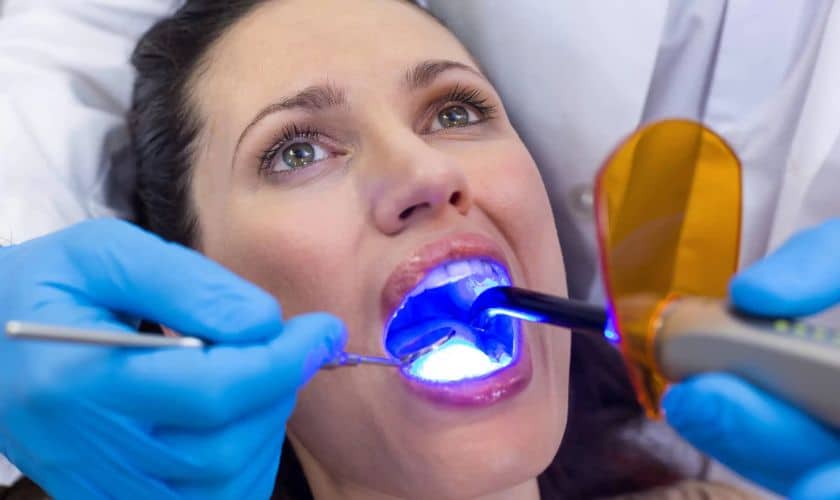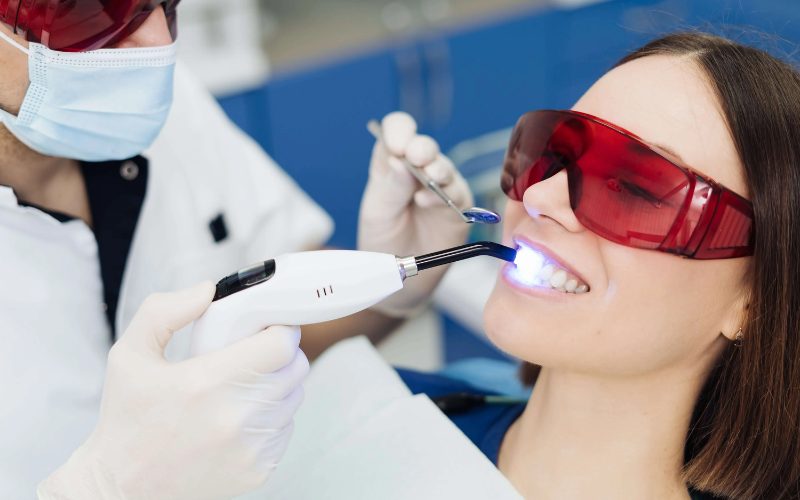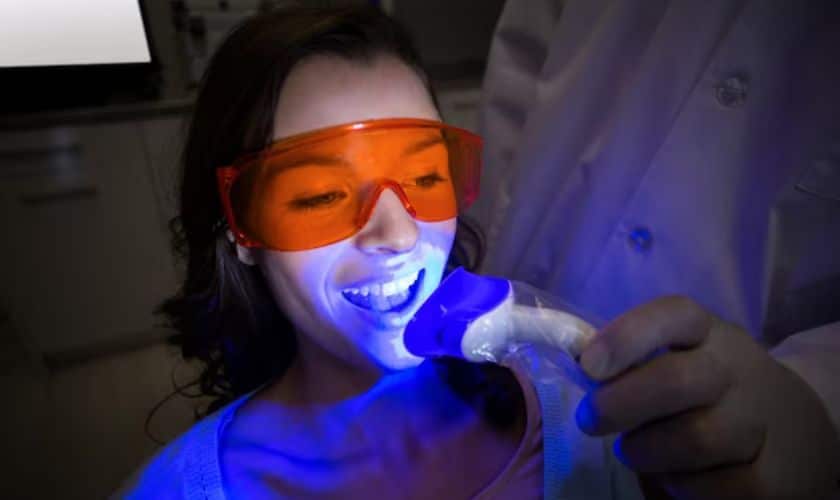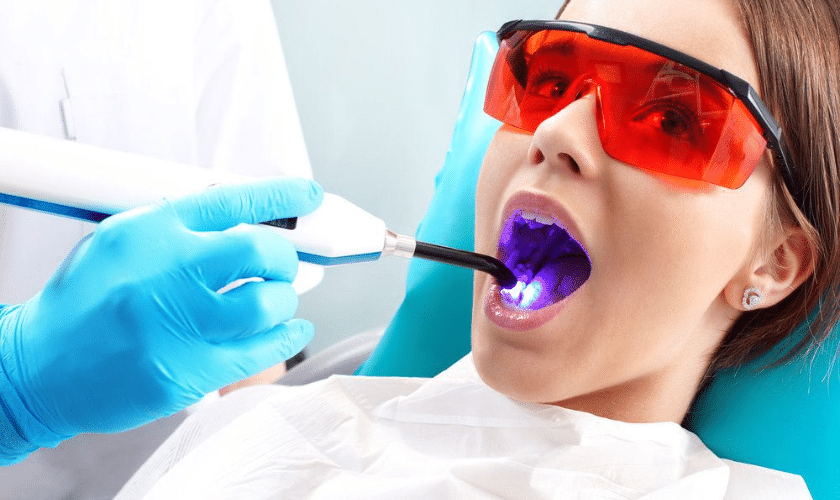
Are you terrified of the dentist’s drill? Well, fear no more! Laser dentistry is revolutionizing oral care, making dental procedures faster, more precise, and virtually painless. But hold on a second – before jumping to conclusions about laser dentistry, let’s debunk some common myths that might be holding you back from experiencing this groundbreaking innovation. In this blog post, we’ll separate fact from fiction and reveal why laser dentistry is an absolute game-changer for your dental health. So sit tight and prepare to have your misconceptions shattered – it’s time to unveil the truth about laser dentistry!
What is Laser Dentistry?
Laser dentistry is one of the most popular forms of dental care today. It uses a powerful laser to remove dental plaque and bacteria from teeth. This can help improve your oral health and reduce the need for regular dental visits.
Many people believe that laser dentistry is risky or painful, but this is not always true. In fact, many people find the process painless and even enjoyable.
Common Myths About Laser Dentistry
There are a few popular myths about laser dentistry that need to be debunked.
Laser dentistry is dangerous because it can cause burns or other injuries: This is not true. In fact, laser dentistry is one of the safest dental treatments available. There are very rare cases where lasers can cause burns, but these cases are extremely rare and typically occur when the laser is incorrectly used or when there is an underlying medical condition that makes the patient particularly vulnerable to thermal injury. In most cases, laser dentistry is completely safe and you will never experience any burn or injury from treatment with a laser.
Laser dentistry requires extensive dental work that cannot be done on my own: This isn’t always true. Many people believe that they cannot get satisfactory results from laser dentistry unless they have extensive dental work done by a dentist, but this isn’t always the case. With proper treatment using a laser Dentist, many people can achieve great results without needing any additional dental work done by them or their dentist. In fact, some people even opt for minimal dental work after undergoing treatment with a laser Dentist as it tends to improve their overall oral health and look more attractive overall.
I need to avoid exposure to blue light while getting treated with a laser because this will result in damage to my teeth.
This isn’t necessarily true either – although blue light does have some harmful effects on the human body, exposure to
How Does a Laser Work?
Lasers use a powerful beam of light to cut teeth. The beam is carefully focused on the tooth being treated, and then allowed to pass through the tooth and into the root. The laser vaporizes the surface of the tooth, causing it to break down into small pieces. This process destroys any bacteria or virus that may be present on the tooth, and also removes any loose teeth or other debris from inside the tooth.
< h2>Types of Lasers Used in Dentistry
There are several types of lasers that dentists use in their practices. They include the CO2, Erbium-Doped YAG, and Diode Lasers. Each laser has its own advantages and disadvantages, so it’s important to choose the one that’s best for your specific needs.
The CO2 Laser is by far the most common type of laser used in dentistry. It’s usually the least expensive option and has a wide range of applications, including dental restoration work and cosmetic procedures like facelifts and Botox injections. However, the CO2 Laser has some limitations. For example, it can’t be used to treat deep cavities or to remove large amounts of material from a tooth.
The Erbium-Doped YAG Laser is an emerging technology that offers some advantages over the CO2 Laser. For example, it can reach deeper into teeth than the CO2 Laser can, and it’s easier to use on soft tissues like gums and nerves. However, the Erbium-Doped YAG Laser is more expensive than the CO2 Laser and doesn’t have as wide a range of applications.
The Diode Lasers are another popular type of laser used in dentistry. They’re relatively new technology and offer some unique benefits over other types of lasers. For example, they’re able to target specific areas within teeth without causing excessive burning or damage. Additionally, they’re less likely to cause side effects like burns and
The Benefits of Laser Dentistry
Laser dentistry is a highly effective dental care option that can provide many benefits for patients. Here are four of the most common myths about laser dentistry and how they are false:
Laser dentistry is dangerous: Laser dentistry is one of the safest treatments available to patients. In fact, many studies have shown that laser treatment is less likely to cause adverse effects than other conventional dental procedures.
Laser dentistry requires a longer treatment time: Most laser treatments take just a few minutes, and most people can return to their regular activities right after the procedure. In some cases, oral sedation may be required for particularly anxiety-prone patients, but this is generally only needed for more extensive treatments or procedures.
Laser dentistry needs expensive equipment and materials: Most laser systems used in dental clinics today are relatively affordable and can be used by any dentist who has experience using them. Additionally, most materials required for laser dentistry, such as lasers and light sources, are readily available at your local hardware store or pharmacy.
A full set of teeth needs to be treated with laser therapy in order to see significant results: While it’s true that more extensive treatments may result in better outcomes, many people can achieve great results with low-level laser therapy alone. In fact, some of the world’s leading smile experts believe that everyone should have access to low-level laser technology for optimal dental health!
Laser dentistry is a highly effective treatment for dental issues, and it has become an essential part of our oral health care arsenal. However, there are a number of myths about laser dentistry that need to be debunked so that you can make the best possible decision when considering this treatment option. By understanding the facts about laser dentistry, you can ensure that you get the most out of your dental experience and receive the best possible results.




